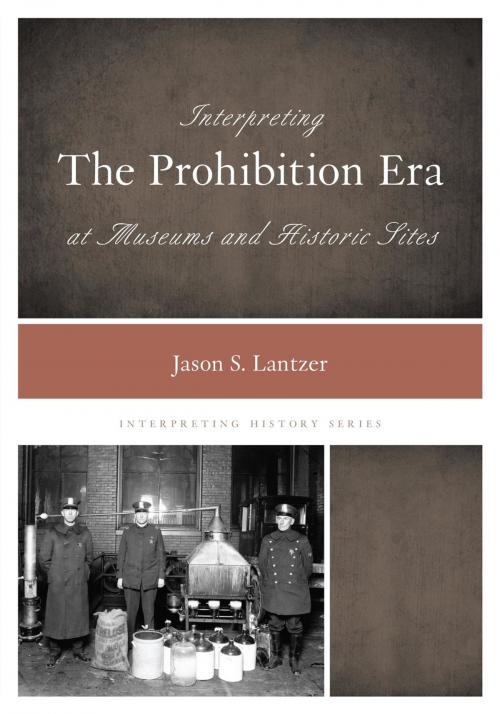Interpreting the Prohibition Era at Museums and Historic Sites
Nonfiction, History, Americas, United States, State & Local| Author: | Jason S. Lantzer | ISBN: | 9780759124332 |
| Publisher: | Rowman & Littlefield Publishers | Publication: | November 20, 2014 |
| Imprint: | Rowman & Littlefield Publishers | Language: | English |
| Author: | Jason S. Lantzer |
| ISBN: | 9780759124332 |
| Publisher: | Rowman & Littlefield Publishers |
| Publication: | November 20, 2014 |
| Imprint: | Rowman & Littlefield Publishers |
| Language: | English |
Interpreting the Prohibition Era at Museums and Historic Sites chronicles the rise and fall of one of the greatest attempted reforms in American History. Why were Americans so worried about alcohol? Why did they seek to ban an entire industry? How did those involved in the trade react? How did repeal come about? How should we remember the "noble crusade"? Such questions are important, both for historians and museums who seek to interpret the Prohibition Era, as well as for the general public who wants to know more about the Roaring Twenties and how it continues to shape the United States today.
This captivating guide will help interpreters explain the history of prohibition, its repeal, and its legacies.
Case studies cover:
· Breweries
· Reformers
· Women
· Saloons, both before and after Prohibition
· Gamblers and gumshoes
This guide will help museum and history professionals make sense of a complex story, relate the history and legacy of political pressure groups, and help learners think about the era in new ways.
Interpreting the Prohibition Era at Museums and Historic Sites chronicles the rise and fall of one of the greatest attempted reforms in American History. Why were Americans so worried about alcohol? Why did they seek to ban an entire industry? How did those involved in the trade react? How did repeal come about? How should we remember the "noble crusade"? Such questions are important, both for historians and museums who seek to interpret the Prohibition Era, as well as for the general public who wants to know more about the Roaring Twenties and how it continues to shape the United States today.
This captivating guide will help interpreters explain the history of prohibition, its repeal, and its legacies.
Case studies cover:
· Breweries
· Reformers
· Women
· Saloons, both before and after Prohibition
· Gamblers and gumshoes
This guide will help museum and history professionals make sense of a complex story, relate the history and legacy of political pressure groups, and help learners think about the era in new ways.















